|
By KATE Board Members 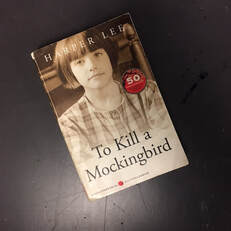 The KATE blog committee has the latest scoop regarding some of our board members. Warning: if you don’t want to be privy to these scandalous facts, stop reading now. If you want to be in the loop, read on. The choice is yours. After a whole afternoon of diligent super-sleuthing (AKA sending a group email and collecting responses), the blog committee can report the following: KATE board members read banned books. In fact, they have indulged in the reading of so many banned books that many of them have favorites. In the interest of transparency, we offer this list to our membership. Monica Swift and Lis Bauman adore To Kill a Mockingbird. “I LOVE the realness of the characters, especially Atticus,” Swift confesses. 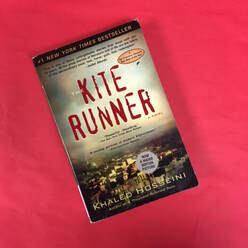 Other brazen board members not only reveal their favorites, but weigh in on their disapproval of banning books altogether. Consider Keeley Torbet’s rant: My favorite banned book is The Kite Runner by Khaled Hosseini. There are few writers with such finely turned phrases and vivid imagery writing today. His prose is almost lyric in quality. I become so deeply engrossed in his characters and stories that I feel like I am part of them. How that level of artistry can be banned is beyond pale. He makes his characters come alive and embraces them for who they are which is a trait that we as humans need to be better at adopting. Never one to ban books in my personal or professional life, I struggle mightily with how people can justify telling someone what they can and cannot read. How can telling stories about people and their identities and actions be bad? How is offering differing viewpoints, new windows to see through, and life experiences we may never have ourselves be dangerous? I cannot answer these questions, but I can ensure that my own children and my kids (students) are given the freedom to explore literature in all its variety and beauty. 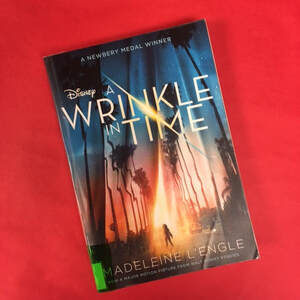 Joann McRell defends Lois Lowry’s The Giver as a powerful text for all students, middle school through post-secondary. “Lowry creates a Utopian society free of hunger, poverty, and violence. Unfortunately, it is also void of hope, love, and joy.” If we believe McRell, the story communicates that “choice and the power of the individual provide hope that our society will continue to see value in its diversity.” Suzanne Porath boldly acknowledges that reading banned books can broaden one’s worldview past one’s immediate circle of family and friends. She states: One of my favorite banned books is Madeleine L’Engle’s A Wrinkle in Time. It's been banned or challenged because of its mix of science and religion with supernatural spirituality. Some people also think it is too complex for young minds. When I first read it, there were few books that had strong female characters, unless, of course, it was a romance book or about babysitting. I related to Meg in many ways - I didn't feel like I fit in my family, I didn't like the way I looked, and I was told I had an "attitude." When I first read this book, I copied out many impactful quotes, like “Maybe I don’t like being different,” Meg said, “but I don’t want to be like everybody else, either.” This seemed to encapsulate my struggle. Also, "Nothing is hopeless; we must hope for everything." In a time of COVID, this is still so true! This book, and the rest of L'Engle's books, shaped my teenage years and gave me a different perspective on love, family, and memories. 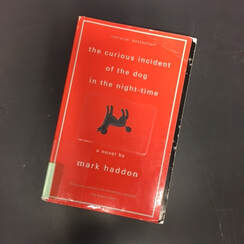 For Anna Drenick, apparently inappropriate language in a book is not a problem. “Although there are quite a few of my favorites that have been on the banned book list, my favorite is The Curious Incident of the Dog in the Night-Time by Mark Haddon. The book is told from the perspective of a 15 year-old boy on the Autism spectrum who is on a mission to solve a mystery in his neighborhood. It is banned in some schools for ‘profane language and the promotion of atheism.’ I love this book because it offers empathy, understanding, and a little mystery for its readers. 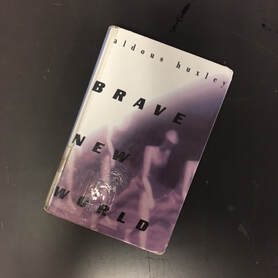 Jennifer Enright’s favorite banned book is Native Son by Richard Wright. “I love the way he tackles the complexity of issues in America and does so with nuance,” she boasts. Then there’s LuAnn Fox. She appreciates Lolita. “It’s mature, to be sure, but it’s a farce in disguise and showcases the mad genius that is Nabokov as he writes a love letter to the English language wrapped in a taboo subject.” Our own president Nathan Whitman can’t seem to help himself either. He cherishes Aldous Huxley's Brave New World. He even prefers it over George Orwell’s classroom classic. His claim: While 1984 has its fair share of points and warnings about dictatorships and fascism, I think that this sleeper-hit dystopic utopia fits a lot closer to our present reality, especially when we consider our addictions to feeling good via social media (a soma, if you will). Huxley's thoughts about controlling people through narcissism and self-indulgence were far more prescient and applicable for today. If you aren’t shocked enough, let us shake you a little more with Erica Shook’s stunning confession. She’s read so many controversial texts, she can’t narrow it to one favorite. In fact, she shamelessly announces that she actually chooses many books “simply because they made the list. For example, the His Dark Materials trilogy by Phillip Pullman. It is unlikely that I would have picked it up had it not been for all the people at the time screaming for its banning. And I loved it! One thing is for sure: if people want a book banned, there is an astronomically high probability that it is exactly the book we should all be reading.” Very well, Ms. Shook. If you insist. Feel free to use this moment to come clean with your own banned book secret delights. Share your favorites in the comments below. 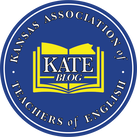 About the KATE Board Along with advocating for quality literature, the KATE Board is also passionate about advocating for English teachers across the state. The board's main goal is to inspire and support KATE members to include the texts and lessons in their classrooms that will engage students the most. Feel free to read Katherine Cramer's post regarding NCTE Position Statements if you are fearful about including a certain text in your room! Trust your teacher instinct and provide your students with the texts you know that they need.
1 Comment
Vicki Seeger
10/2/2020 03:27:17 pm
I admire Geraldine Brooks a great deal. Nine Parts of Desire is such an informative book. A banned book on the list that I loved is The Year of Wonders. The parallels between what occurred in that book and what is now occurring with the pandemic gives one pause to think.
Reply
Your comment will be posted after it is approved.
Leave a Reply. |
Message from the EditorWelcome! We're glad you are here! Archives
March 2024
Categories
All
|
 RSS Feed
RSS Feed